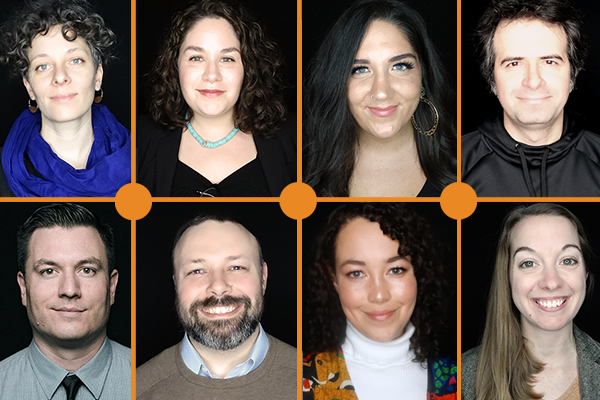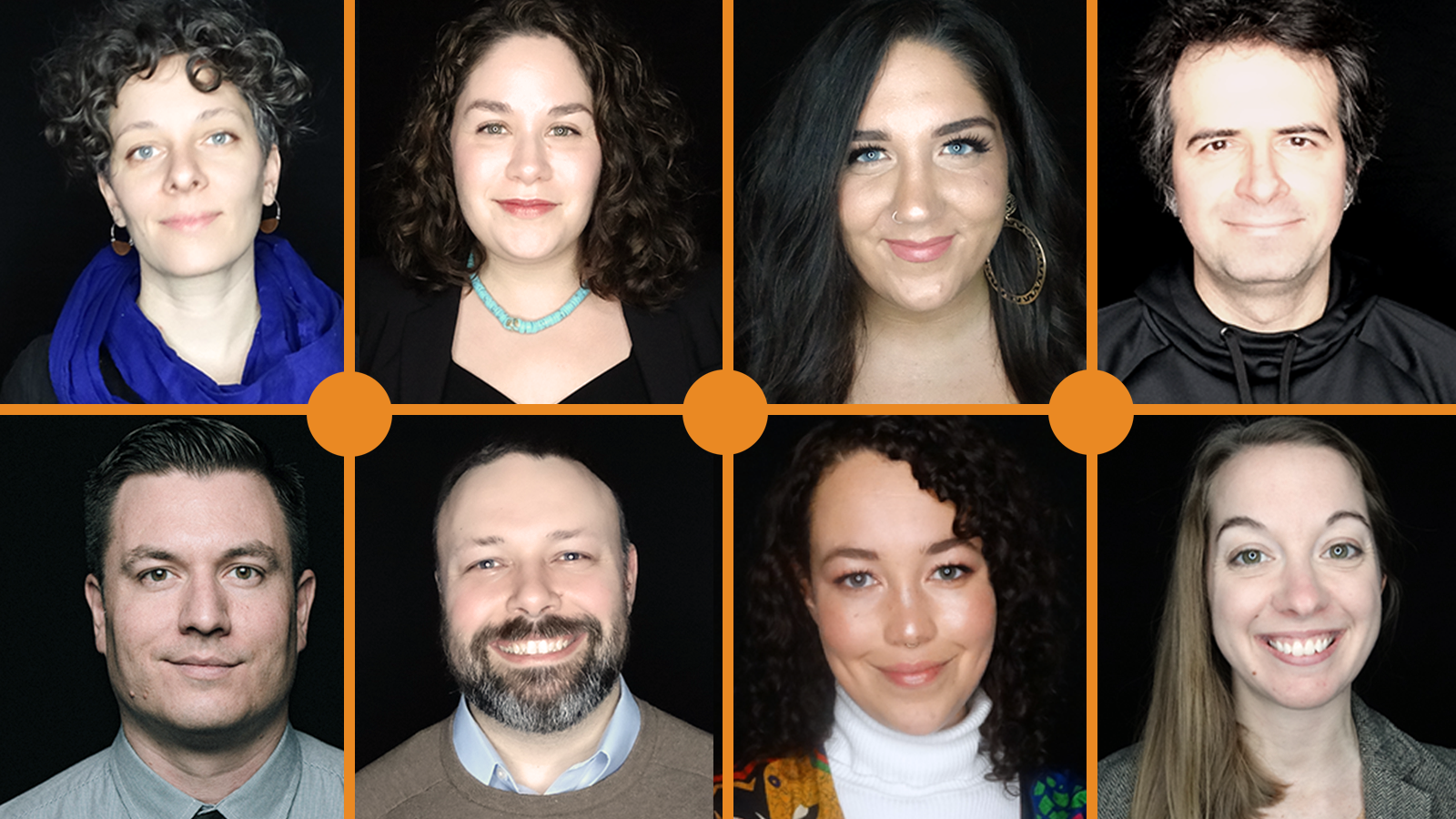Graduate Education: Building Collaborative Cultures

By Program Manager Puja Batra-Wells

2019-2020 Graduate Team Fellows
(Top left to right) Jacklyn Brickman, Mercedes Chavez, Sophia Enriquez, Ehsan Estiri
(Bottom left to right) Rhys Gruebel, Trevor Marcho, Aviva Neff, Lyndsey Vader
Program summary
In the spring of 2019, the Global Arts + Humanities Discovery Theme inaugurated a one-of-a-kind arts and humanities graduate fellowship inspired by the team science model: the Graduate Team Fellowship program. This fellowship brings together a cohort of graduate students whose projects intersect with one or more of the GAHDT Focus Areas – providing students with an opportunity to gain cross-disciplinary mentorship while being embedded in a collaborative ecology. The program aims to give graduate students in the arts and humanities an essential toolkit of skills as they prepare to enter a newly evolving job market – one that is highly dependent on networks, technology and a collaborative ethos.
The program has supported 15 interdisciplinary scholars thus far. This year’s fellows explored the potential of the arts and humanities to address challenges presented by the climate crisis, environmental degradation, medical addiction, and cultural representations of underrepresented communities. Graduate fellows met monthly with Professors and Faculty Fellows Dorry Noyes and Susan Van Pelt Petry engaging in cross-disciplinary dialogues that provided opportunities for more carefully-honed and translatable research descriptions, job talks, and public-facing contributions.
Dorry Noyes and Susan Petry Dialogues about methods and content across the rich range of interdisciplinary projects unearthed new understandings of shared or divergent systems of knowledge production, which newly framed the graduate experience as one focused on building collaborative research cultures.
Why now?
We live in complex times characterized by diverse and grave global challenges that require socially responsive, multifaceted solutions. Truly innovative solutions depend on scholarship that harnesses insights from a cross-disciplinary and collaborative perspective. Such integrative knowledge allows scholars to develop much more complex and innovative outputs by engaging research questions from a variety of methodological and theoretical orientations, and to interrogate unquestioned assumptions, biases and blind spots tacit in their disciplinary and research cultures. This also includes training students in ways of negotiating a competitive research-funding environment by mentoring them through processes of grant and proposal writing.
Ehsan Estiri (PhD candidate, Department of Near Eastern Languages and Cultures): This kind of cross-disciplinary research represents an avant-garde and non-conventional approach — I hope to learn from other fellows on how they draw on multiple fields in arts and humanities to answer their questions.
Lyndsey Vader (PhD candidate, Department of Dance): I was excited to deepen my research amongst a group of artist-scholars across campus whose work intersects with core GAHDT themes. This graduate fellowship creates a space that honors creative critical-thinking through research grounded in theory and practice. The potential for cross-pollination of ideas made the team-based component of the fellowship particularly appealing. It is a delight to experiment with different models that amplify convergences across research areas.
Building collaborative cultures
Whereas there is strong evidence of the collaborative ecology in the STEM fields, the arts and the humanities still have to demonstrate this 'culture change’ as they continue to emphasize specialization, often at the cost of collaboration (Borroughs, 525). The Global Arts + Humanities Graduate Team Fellowship program aims to advance cross-disciplinary team-based research cultures by brokering collaboration and facilitating the sharing of conceptual frameworks and disciplinary alignments. Not only will this experience build tolerances for varying academic perspectives, it also fosters in graduate students a receptivity towards network-based insight building. Our fellowship thus encourages agility in methods and modes, creativity of mind and practice, and intellectual grit.
Rhys Gruebel (MFA candidate, Department of Design): I am building my professional network beyond the design community into other disciplines that are represented in the cohort. I also hope that experience will enable me to amplify my voice farther than I would have been able to do on my own.
A model for relational scholarship
The Global Arts + Humanities Discovery Theme is invested in advancing cooperative scholarship that is relational in its orientation. It is a model of research and practice that acknowledges our varying entanglements in the process of knowledge production — the human and non-human world, the digital and the material, the social and the singular. It fosters a critical consciousness and an ethic of global interdependence and collaboration.
Mercedes Chavez (PhD candidate, Department of English): In working with cinema studies and the environmental humanities, my work presents an emergent and naturally cross-disciplinary methodology, drawing out the interplay between the industrial/cultural object of film and the human relationship to nature.
